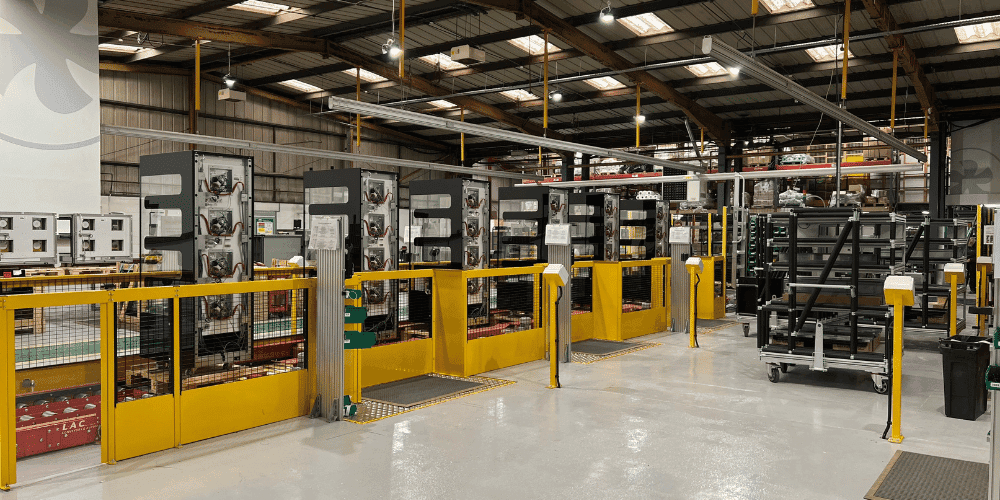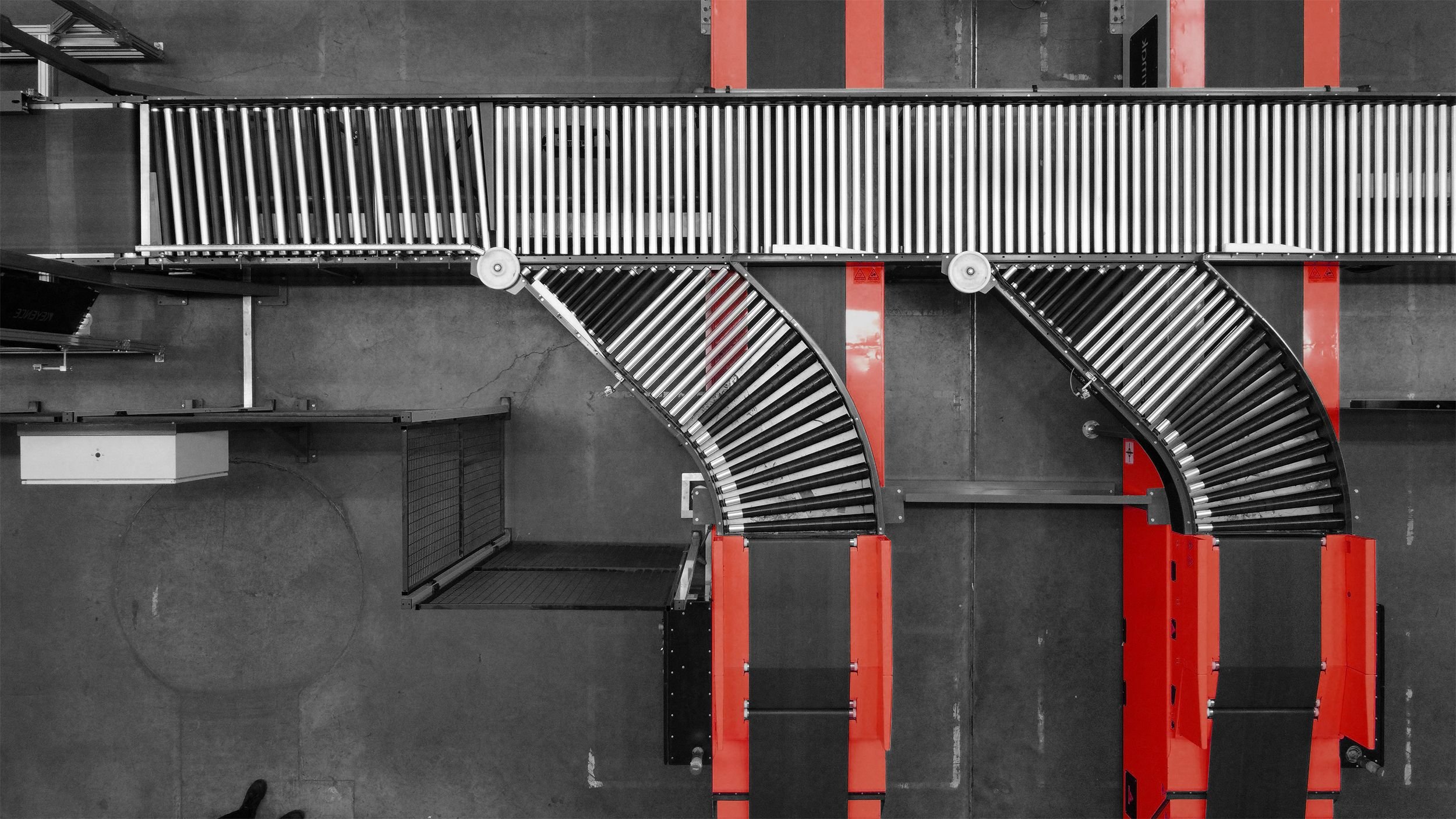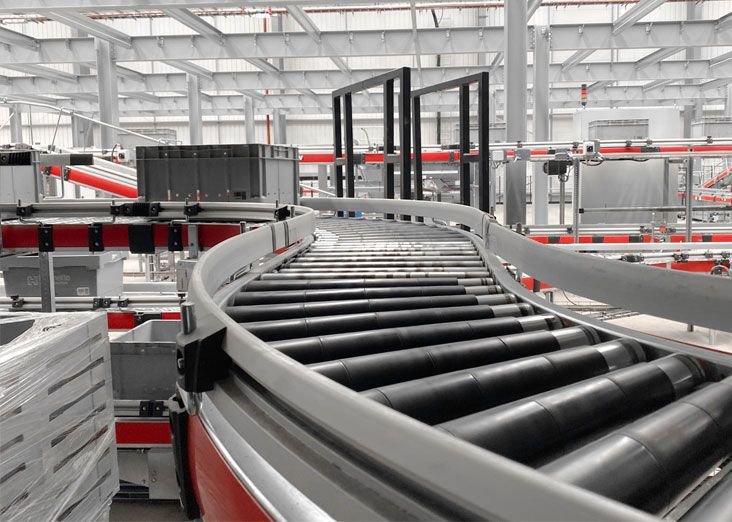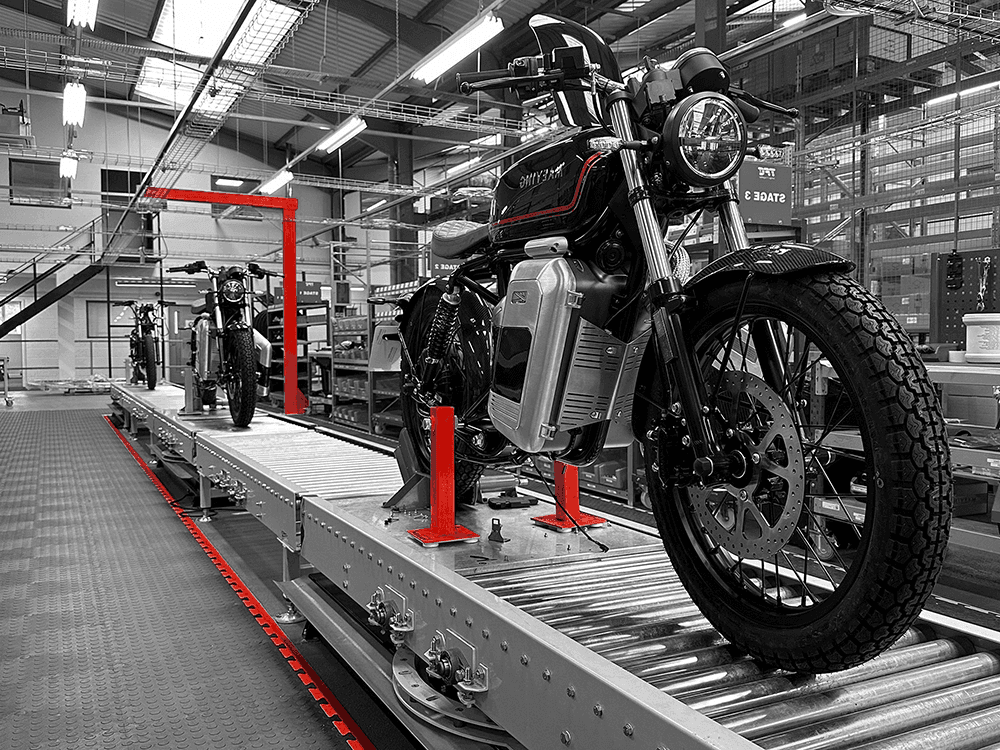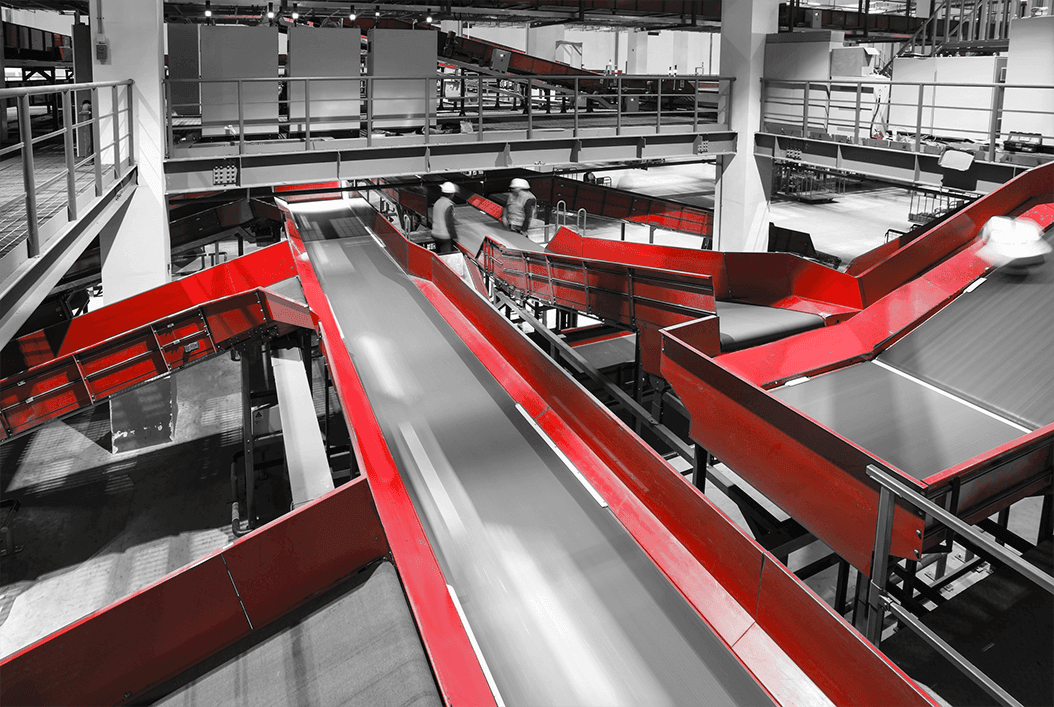Increased Throughput and Efficient Production
One of the most significant benefits of conveyor systems is their ability to increase production throughput. Unlike manual labour, which is limited by speed and prone to errors, automated conveyor systems maintain continuous material flow. Conveyor belt systems, such as roller conveyors and belt conveyors, are capable of operating at consistent speeds, ensuring the smooth and efficient transport of materials between production stages.
For example, in an assembly line, an appropriate type of conveyor system can quickly move components from one workstation to another without manual intervention, which minimises bottlenecks and maximises production speed. As a result, manufacturers can process more units in less time, achieving higher levels of efficiency. Efficient material handling translates into reduced production time and allows businesses to meet deadlines effectively, which is essential in a competitive manufacturing industry.
Reduced Labour Costs and Enhanced Warehouse Efficiency
By implementing conveyor solutions, manufacturers can significantly reduce labour costs. Traditional manual handling methods require workers to move products between different stages of production, increasing the likelihood of errors and injuries. By automating these tasks with conveyor systems, companies minimise the need for manual labour, which leads to more efficient operations and lower operational costs.
Conveyor systems free up workers to focus on more valuable tasks such as quality control, equipment maintenance, or managing a Warehouse Management System (WMS). This reallocation of labour not only reduces costs but also improves overall warehouse efficiency by optimising labour resources. In distribution centres and manufacturing facilities, automated conveyor systems provide a highly efficient means to manage the movement of goods.
Consistent Quality and Minimised Human Error
Manual handling introduces the risk of human error, which can lead to incorrect placement of parts or materials and reduced production quality. Conveyor systems offer precise, automated control over material handling, ensuring consistent and accurate transport of goods.
Each type of conveyor system, whether it’s belt conveyor systems, roller conveyors, or other conveyor types, can be designed to handle specific types of products and manufacturing needs. This precision reduces errors, minimises waste, and ensures higher-quality outputs. Fewer mistakes mean reduced rejection rates and a more efficient operation, leading to better customer satisfaction and a positive return on investment (ROI).
Improved Safety and Reduced Risk of Accidents
Workplace safety is a major concern in manufacturing environments, especially when dealing with heavy or awkwardly shaped materials. Manual handling poses a significant risk of workplace injuries. Conveyor systems mitigate these risks by automating the transportation of heavy loads, thus minimising the need for workers to handle hazardous tasks.
Safety features such as emergency stops, sensors, and controlled speeds are integrated into conveyor systems to further enhance workplace safety. By reducing the physical strain on workers and incorporating safety systems, manufacturers can create a safer working environment while also improving overall efficiency gains.
Energy Efficiency and Optimised Space Utilisation
Energy consumption is a critical consideration in the efficient operation of manufacturing facilities. Modern conveyor systems are designed to be energy efficient, reducing overall energy usage without compromising performance. Energy-efficient conveyor belt systems utilise advanced technologies to ensure that the system operates optimally, minimising power consumption while maximising output.
Additionally, conveyor systems allow for better space utilisation in production facilities. Whether in tight spaces or sprawling distribution centres, conveyors can be designed to move vertically, around corners, or even overhead, which helps optimise the use of floor space. By making better use of available space, manufacturers can expand their operations without the need for larger facilities, leading to better long-term growth potential.
Customised Conveyor Solutions and Scalability
One of the advantages of modern conveyor systems is their scalability and flexibility. Whether transporting bulk materials or small parts, each conveyor type can be tailored to meet the specific demands of different industries. Conveyor systems can be customised based on load capacity, material type, speed requirements, and the type of product being manufactured.
Furthermore, businesses can scale their conveyor solution as production grows or fluctuates. Modular designs allow manufacturers to easily expand or reconfigure their systems to handle increased production demand. This flexibility ensures that conveyor systems remain adaptable, meeting evolving needs while supporting future growth.
Seamless Workflow and Process Integration
Conveyor systems play a crucial role in ensuring seamless workflows. By facilitating continuous material flow, they improve the integration between different processes in manufacturing facilities. Conveyor systems can be linked with other automated systems such as robotic arms, Warehouse Management Systems, and sensors to further streamline production.
For example, automated conveyor systems can detect when products are misaligned or need inspection and automatically reroute them to another section of the production line. This level of integration reduces downtime, prevents bottlenecks, and ensures that materials move smoothly through each production phase, leading to significant efficiency gains.
Regular Maintenance and ROI
Maintaining conveyor systems regularly is crucial to ensuring their long-term operational efficiency. Regular maintenance minimises downtime, prevents costly repairs, and ensures that the system continues to operate at optimal capacity. Over time, the investment in conveyor systems delivers strong returns, reducing operational costs, improving production efficiency, and enhancing product quality.
Conclusion
Conveyor systems have become essential in today’s manufacturing landscape due to their ability to enhance operational efficiency, reduce labour costs, and ensure safe, continuous material flow. Whether using belt conveyors, roller conveyors, or other types of systems, manufacturers benefit from streamlined processes, better energy efficiency, and improved product quality. Investing in automated conveyor solutions is an effective way to drive efficiency, reduce risk, and prepare for future growth, ensuring that manufacturers remain competitive in an evolving market.
